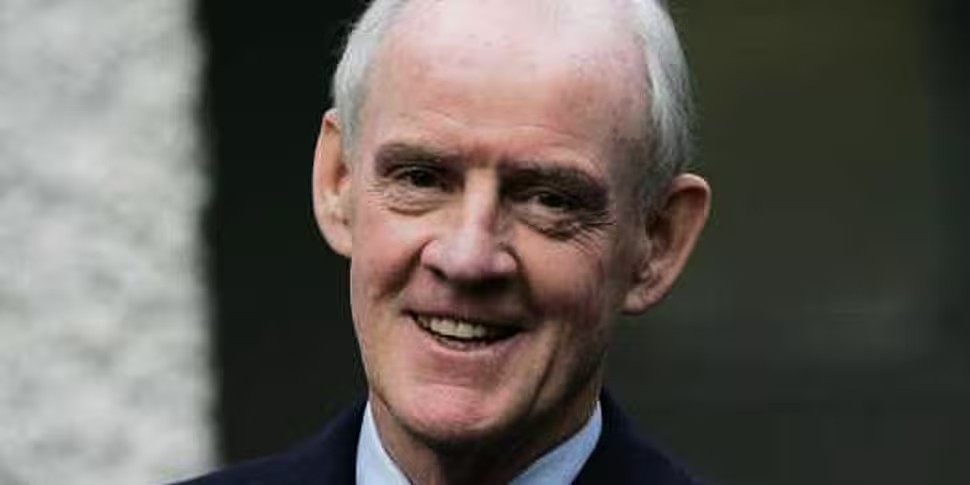By the end of the year expect horseburger to be among the most popular hashtags on Twitter. It has generated endless, and increasingly unfunny, puns on the social media site for weeks now.
But behind it lies an issue that couldn't be further from humour. There can be no greater danger for a food company than a scare over safety and quality.
And while the discovery of horsemeat in cheap supermarket burgers was far from a safety issue it has done enormous damage to the international reputation of Ireland’s food industry, which is worth €9 billion a year to the economy.
The fact that the investigation discovered that the horsemeat came from Poland and not the Larry Goodman-owned Silvercrest Foods factory in Monaghan has diverted disaster.
There is no doubt Goodman has suffered a blow. The Silvercrest factory is closed with no date yet for re-opening, casting doubt on the future of 112 jobs. About 10 million burgers have been withdrawn from sale, and the 76-year-old Louthman’s past business dealings have been dragged up and raked over again in the media.
The financial fall-out was also considerable. Burger King has pulled the plug on its €30m contract with Silvercrest last week. Tesco pulled its frozen burger contract worth €15m. Other supermarkets in the UK including, the Co-Operative and Aldi have done the same.

But make no mistake, Larry Goodman will survive. As he was two decades ago Goodman is too big to fail. The Goodman empire has been, and remains, hugely important to the Irish economy.
In the 1980s his business accounted for about 5% of the country's economic output. Until then Goodman’s name was untarnished and the Bentley-driving, non-drinker was a master of the universe.
His close political links were important when the company ran into trouble in 1990. It was a huge supplier of meat to Iraq and when the United Nations slapped sanctions on the country following its invasion of Kuwait it caused a life-threatening crisis. Goodman was owed hundreds of millions by Saddam Hussein’s regime. And it left the Irish state exposed because the government had provided export credit insurance to Goodman companies.
With the survival of the company in doubt, an emergency session of the Dáil was called and rescue plan cobbled together that saw a group of banks take majority control and save Goodman’s AIBP company as it was then called.
More serious controversy was to follow when a British television documentary (made by the now Labour senator Susan O’Keefe) exposed serious practices within the beef industry that led to the setting up of a tribunal of inquiry.
The report by the Justice Liam Hamilton runs to almost 600 pages and was highly critical of Goodman – who still disputes its findings. It also revealed the extremely close links between the businessman and senior ministers.
The clash over evidence between the then Taoiseach Albert Reynolds and Progressive Democrats leader Des O’Malley eventually led to the collapse of the Fianna Fail/PD coalition in 1992.

Throughout the 1990s Goodman set about rebuilding his companies piece by piece. By far his re-incarnation has been even more impressive than his rise in his early years.
He swiftly bought back outright control of the meat processing companies and started buying assets he lost. In 2003, Goodman paid a reported €89m for the Setanta office complex in the centre of Dublin, opposite Trinity College. He had been forced to sell it in 1993.
The processing companies then renamed Irish Food Processors grew rapidly. Details of the financial performance of his business are sketchy. Several years ago it became an unlimited company, thereby ensuring it doesn’t have to disclose its profits. Through several takeovers of processors across Ireland, the UK and Europe, Goodman became the biggest supplier of chilled, fresh and frozen meat. Turnover of ABP Food Group, as his business was rebranded in 2011, is said to exceed €2 billion a year and by a conservative estimate the company makes profits of €50m.
The cash has allowed Goodman to expand, buying the pet food business set up by Albert Reynolds and add to his property portfolio.
Despite his advancing years he has shown no signs of slowing down. Last year he paid about €40m for the former Bank of Ireland headquarters and will pump in as much to renovate it. He is a shareholder in the private Blackrock Clinic in Dublin and could make a substantial sum if the rumours about its sale prove correct.
Goodman is wounded now, but this is not the end of him. While Tesco and other suppliers are angry and have cut contracts, the British supermarket giant has committed to buying €100 million worth of fresh meat from him every year.
The negative publicity will continue. There may be more investigations and more revelations. But Goodman will survive.









